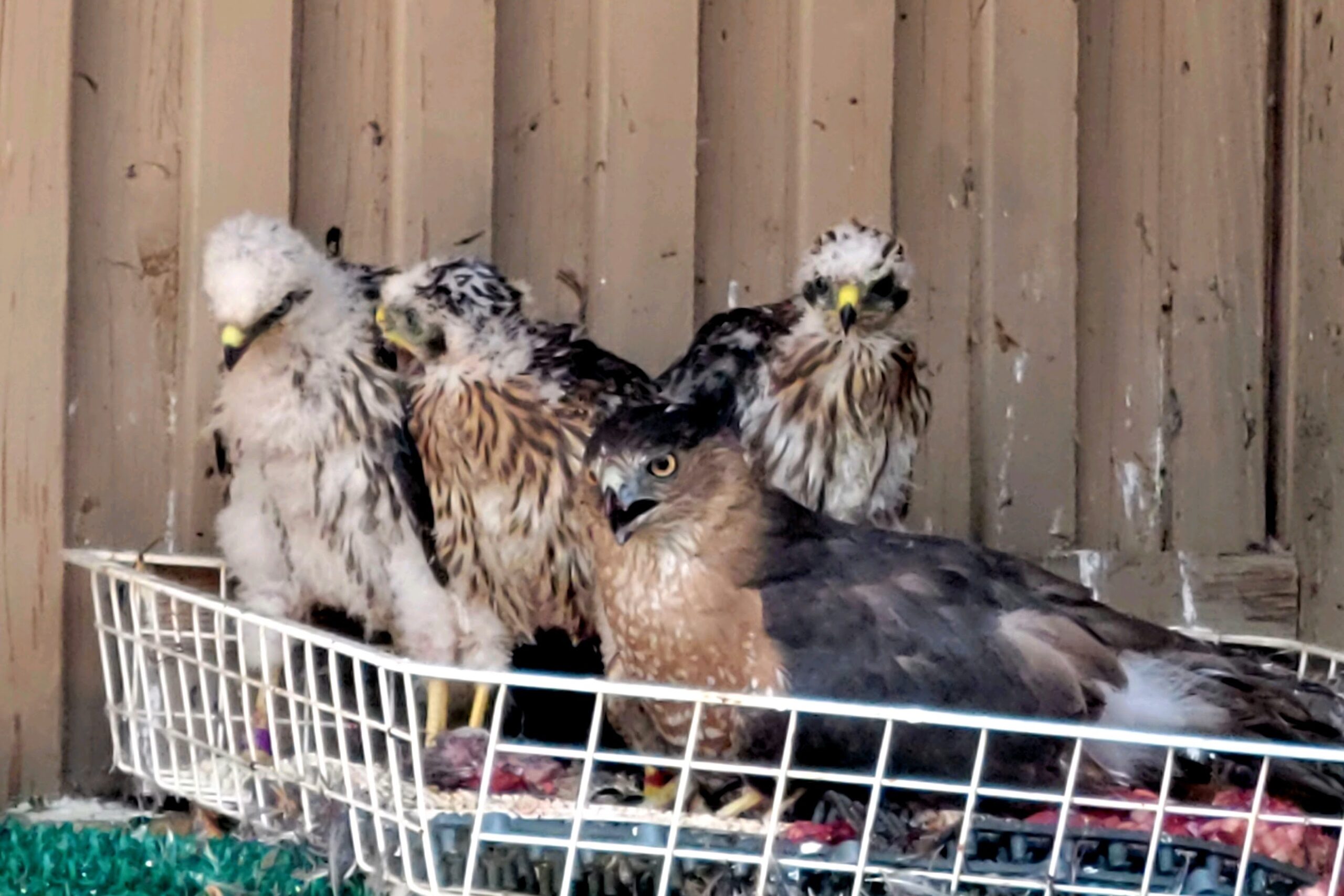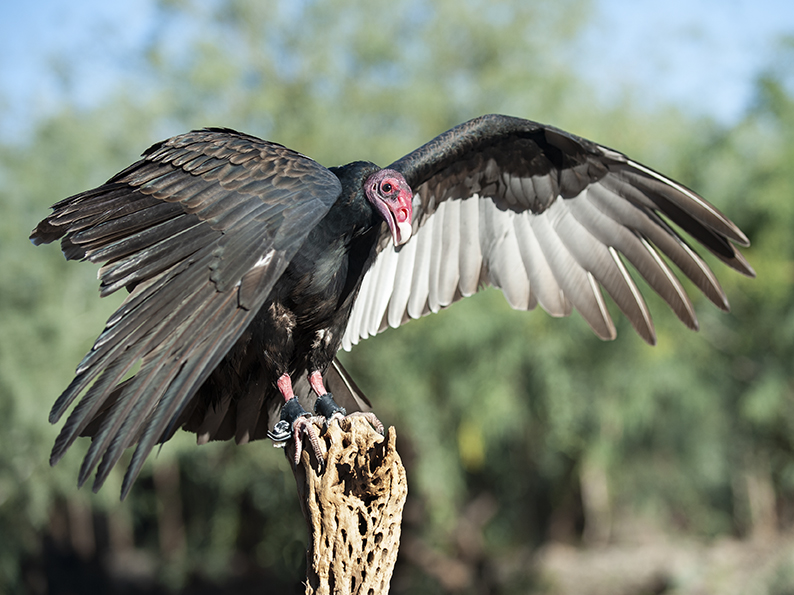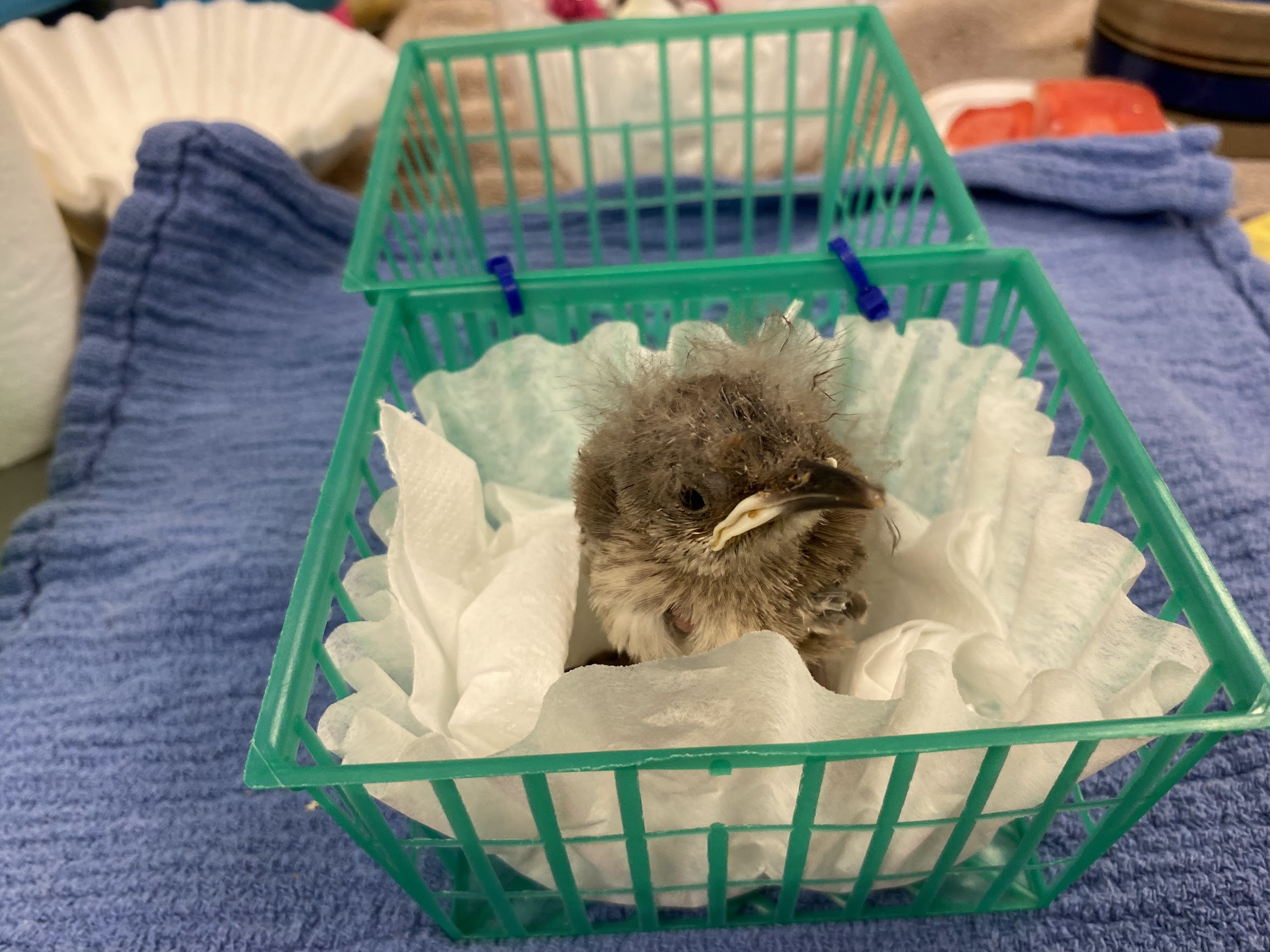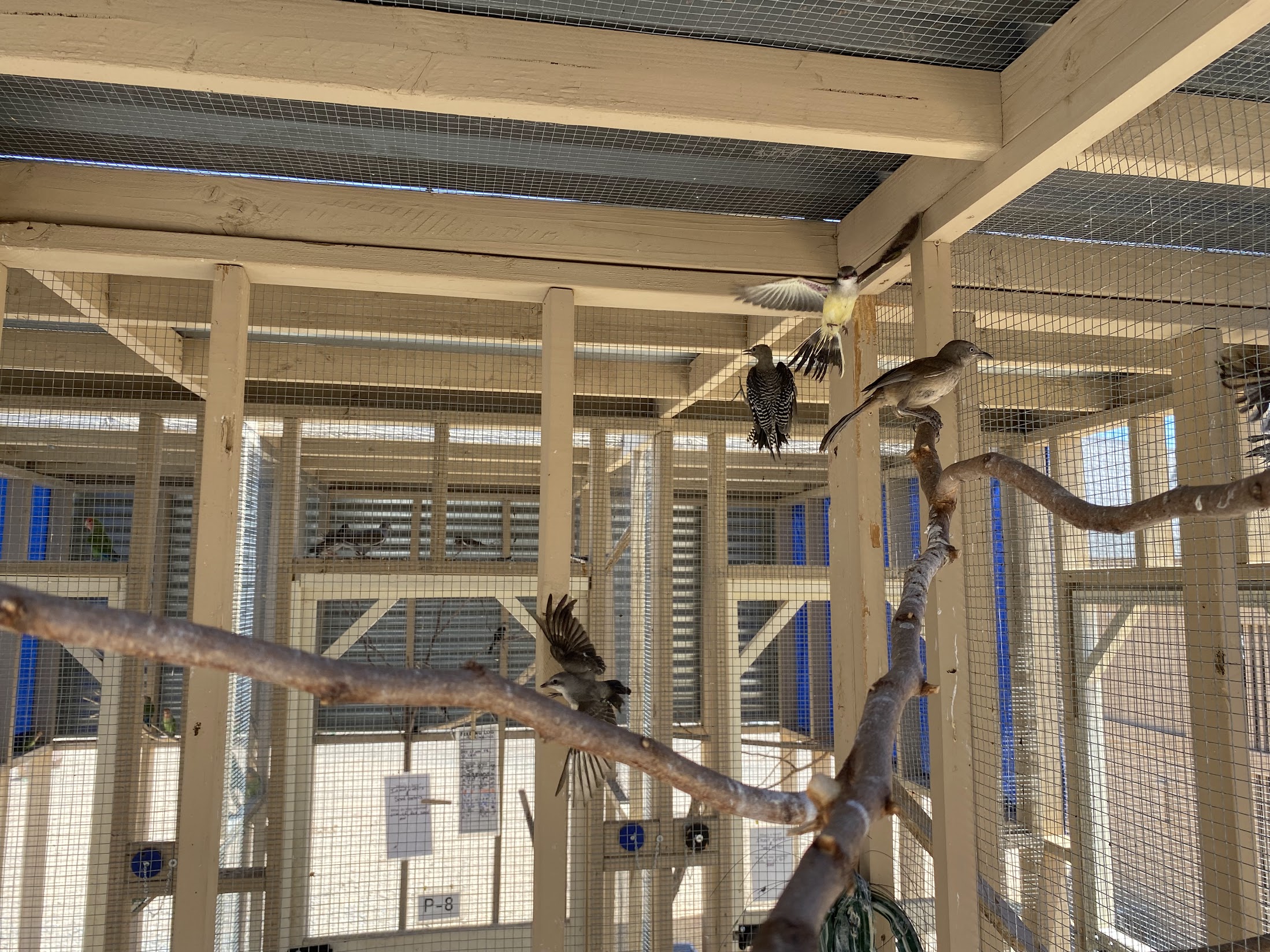Megan Mosby
Executive Director
My office at Liberty Wildlife is situated so that I can see the compassionate folks who are bringing in animals for our care. Every year, about this time, the same phenomena occurs…the line to the Intake Window lengthens. Our system is efficient, so the line moves quickly. Concurrently the Hotline takes more calls at this time of year, the hospital revs up, rescues increase, and all-in-all the activity burgeons.
As I watch the strand of folks, I find myself trying to guess what wildlife is coming in based on the size of the container presented at the Intake Window. Quite often, the biggest box contains the tiniest hummingbird…then there is the freight-sized rolling cart that presented the largest sulcata tortoise ever seen here…90 pounds of reptile…
Last week was one of those weeks. Starting on Monday, we saw 121 animals. Then Tuesday produced another 90 animals. The rest of the week was more of the same. Totaling 652 animals in a week. The berry baskets that house the babies through Triage to the Orphan Care room had to be replenished on a regular basis. The reserve containers that house the critters through the process before the flight enclosures had to be retrieved from storage and set up for their intended jobs. The roll call of critters increased exponentially and much of that is based on the cranky weather during this time…early monsoons bring winds, rain, and high temperatures…all of which make life uncomfortable for baby wildlife and their folks.
In our annual report, we always have a page of statistics. The total number of animals helped in a year (last year 12,750), the number of different species (last year 214) is listed and totaled. The busiest month (last year, June with 21% of all animals for the year). This year is looking to be very similar to last year…and so it goes.
We are always happy to be able to help. We wish we could provide pickups for everything in need of help, but as you can see, there just aren’t enough resources locally to be able to oblige. It is for that reason we ask for your help. For animals that don’t cause the public danger, we ask that you or a neighbor or friend bring them in to us. Lyft and Uber aren’t strangers to our cause. If there is potential danger from the animal for the public, we attempt to assist whenever possible. And we do this with the help of remarkable volunteers. We just had a rescue training class on Saturday. Those dedicated souls will start to come to the rescue when needed and possible.
Another interesting statistic, which we haven’t pulled off the system yet, would be the original location of each of these intakes. The other huge variable here is that this is a vast valley and adding our statewide reach, we could be covering a lot of territory. This, of course, is another reason we ask for your help. With agents around the state, we hope to lessen the need to bring things to the Valley, but until then…if it needs help, we want to help.
As I see it, together with you, we make up a formidable team. Thanks for teaming up with us!
This Week @ Liberty – June 21, 2022
The week after our last blog post, the temperatures spiked for the first time this summer. When the temperatures spike, we see that more baby birds get hot and flee their nest, only to be found by the well-meaning public. On Saturday, June 11th, we had by far our busiest intake day so far this year, taking in 159 patients. Unfortunately, many of these intakes likely could have been left where they were found, if not for urban dangers such as busy roads, stray cats, etc. We’re hoping that this remains the busiest day of the year!

This chart shows the spike in intakes we received during our busiest week.
If you find a baby bird in your yard and aren’t sure what to do, visit the FAQ section on our website here: https://libertywildlife.org/emergencies/animal-care-faq/#toggle-id-2. Please make sure the animal truly needs help before bringing it in.
Cooper’s Hawks
Every year in June, when the temperatures spike, we see Cooper’s hawks of all ages start to bail out of the nest. Cooper’s hawks are Accipiters, which is a classification of hawks with short, broad wings and relatively long legs. They are smaller than red-tailed hawks and typically eat medium-to-small-sized birds.
Most of the time, the babies are fine to be left where they are, as the parents are very protective and will continue to take care of them. If they seem obviously injured from the fall out of the nest, have a swollen face and gunk build-up around their beak, are still very small and the majority of their body is covered in down, or are in imminent danger (near a busy road, in a construction lot, etc), they need to be rescued. Call our hotline number, 480-998-5550, leave a message, and we will dispatch a rescuer to bring them to the facility.
Animal Ambassador of the Week
If you’re planning to travel for the 4th of the July, one of the birds you are likely to see (regardless of where you are in the U.S.) is a turkey vulture. Turkey vultures are scavengers, and they feed on a wide range of carrion. They spend most of their day soaring on thermal winds, waiting to smell their next meal. They are easily identified when soaring by their dark body and forewing, with paler, almost silver or white, flight feathers.
Bryce came to us in 2020 with a right-wing injury. We suspect he was hit by a car, which is not uncommon since they eat roadkill. The condition of the bone precluded surgery. When the fractures healed, it was observed that Bryce did not have full wing extension and would not have full flight ability, making him non-releasable. Bryce is one of three resident turkey vultures you can meet at Liberty Wildlife’s open hours.
The Orphan Care Process
The majority of our intakes over the summer are orphaned songbirds. There are four “sections” within our Orphan Care department that they may go to, depending on their age. The youngest of the birds start off in our brooders, where they are hand-fed at set increments of time (every 15 min, 30 min, etc). Once the bird can regulate its own body temperature, it is moved to a bin. Orphan Care volunteers will continue to hand feed the “bin birds” until they are self-feeding. Once we are sure they are self-feeding, they are moved to the Orphan Care annex. In the Orphan Care annex, they are put in with others of the same species to start socializing and getting used to the summer heat. We have a swamp cooler in the annex, to help them slowly get accustomed to the Arizona heat. Once they are accustomed to the heat and are nearing release, they are moved to the aviaries. In the aviaries, they build up their flight muscles so they can be successful in the wild.
Thank you to our Orphan Care coordinators and volunteers for helping with the long process of raising many baby birds! So far this year, we have released over 800 songbirds and doves!
Posted by Nathan Thrash
Public Outreach Coordinator









Leave a Reply
Want to join the discussion?Feel free to contribute!